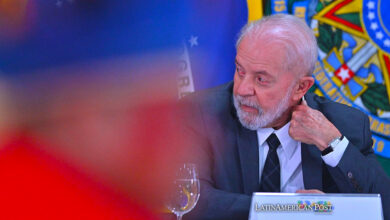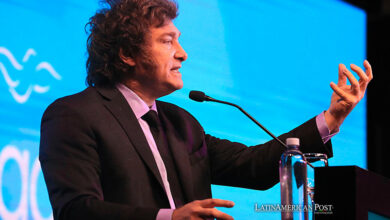Cuba Seeks Overseas Investment Amid Economic Crisis
Cuba aims to engage its growing expatriate community for investment to revitalize its economy, which is facing severe shortages and the worst downturn in decades.

Photo: Freepik
Latin American Post Staff
Escucha este artículo
Leer en español: Cuba busca inversiones en el exterior en medio de crisis económica
Cuba's Economic Lifeline: Turning to Overseas Population Amid Crisis
With its most significant economic crisis in recent history, Cuba is looking to its rapidly expanding overseas population as a potential lifeline. In an interview with Reuters, a senior Cuban foreign ministry official expressed the government's intent to encourage investment from Cubans living abroad, viewing them as key players in revitalizing the nation's struggling economy.
The country has been hit hard by food, fuel, and medicine shortages, exacerbated by the COVID-19 pandemic and intensified U.S. sanctions. This hardship has triggered a mass exodus, with a record number of Cubans, especially the youth, leaving in the past two years. This demographic shift is not only depleting the nation of vital human resources but also presents a unique opportunity, as noted by Ernesto Soberon, director of Consular Affairs for the Cuban Foreign Ministry.
Cuban expatriates have already invested in various sectors on the island, such as bed-and-breakfasts and eateries. However, Soberon pointed out that the Cuban government is eager to see a more substantial flow of capital. He emphasized that there are no more extended restrictions on how Cubans living abroad can participate in the economic life of their country, a significant policy shift from the past.
Diaspora Dialogue: A Renewed Focus on Economic Development
This week, over 400 Cuban citizens from more than 40 countries are set to arrive in Cuba for a conference to discuss the island's evolving economy and other pressing issues. This marks the first such dialogue between Cuba and its diaspora in nearly two decades, indicating a renewed focus on leveraging the expatriate community for economic development.
The conference is expected to attract Cubans who live overseas but maintain a positive view of their homeland, including businesspeople, economists, and members of foreign resident associations. The landscape has dramatically changed since the last formal meeting in 2004 under Fidel Castro. Currently, around 2.5 million Cubans and their descendants reside outside the island.
In 2021, Cuba lifted a ban on private enterprise, a significant departure from its earlier stance under Castro. The government permits most citizens to travel freely, though restrictions still apply to dissidents, athletes, and other groups. Despite these reforms, challenges remain, particularly the U.S. embargo, which complicates financial transfers essential for starting and running businesses.
U.S.-Cuba Relations: Complexities and Expectations
U.S. President Joe Biden's administration has shown limited support for small businesses in Cuba but insists on improvements in human rights as a precondition for further concessions. Recent expectations for new measures to facilitate capital flow still needed to be met, highlighting the complexities of U.S.-Cuba relations. Additionally, some Cuban Americans are hesitant to collaborate with Cuba's government.
Soberon hopes the upcoming conference will review existing mechanisms like remittances, which have begun to serve as seed capital for small businesses in Cuba. The goal is to improve the standard of living on the island to a point where Cubans prefer to stay rather than emigrate.
Also read: Peru Unveils Stimulus to Revive Economy Amid Recession Woes
In conclusion, Cuba's strategy to attract investment from its overseas population signifies a crucial pivot in its economic policy. As the island nation struggles with severe shortages and a crippling economic downturn, tapping into the resources and expertise of its expatriate community could provide a much-needed boost. This approach, however, is not without its challenges, given the complex geopolitical landscape and the varying perspectives of the Cuban diaspora. The outcome of the upcoming conference and subsequent policy actions will be critical in determining the success of this initiative and the future trajectory of Cuba's economy.





